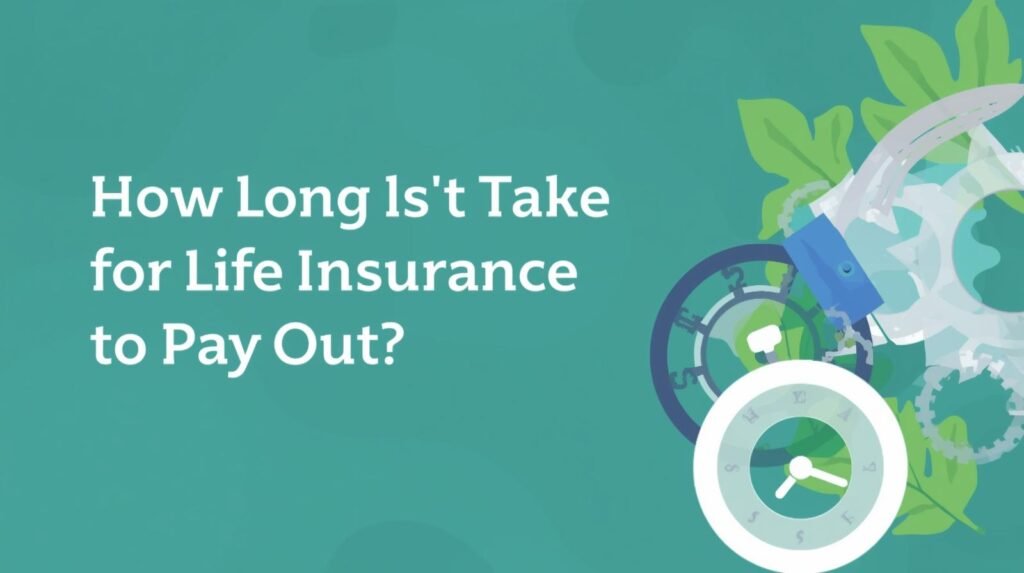If you’ve recently lost a loved one, one of the first questions that may come to mind is: how long will it take for the life insurance company to pay out the claim?
It’s a natural question—funeral costs, medical bills, mortgage payments, and day-to-day expenses don’t wait. Families often rely on that payout to stay financially stable during one of the most difficult moments of their lives.
The good news? Life insurance is designed to provide financial support quickly. Most payouts happen within a few weeks. But the exact timeline depends on several factors, from paperwork to policy type. Let’s break it down.
Typical Life Insurance Payout Timeline
In most cases, life insurance claims are processed fairly quickly once all required documents are submitted. Here’s a step-by-step look at the process in 2025:
| Step in Process | Average Timeframe |
|---|---|
| Claim is filed | Immediately after death (requires a certified death certificate) |
| Review by insurer | 7–14 business days |
| Claim decision | Within 30 days |
| Payment issued | 1–2 weeks after approval |
✅ Total time: Usually 2–6 weeks, though it can take longer if complications arise.
Some families see payouts within 7–10 days when everything is in order, while others may wait several months if the claim is flagged for review.
What Affects How Fast Life Insurance Pays Out?
Not every case follows the same smooth path. Several factors influence how quickly beneficiaries receive funds.
1. Cause of Death
- Natural causes: If the insured passed away from an illness or age-related condition, and the policy is older than two years, the payout is typically quick.
- Accidents or suspicious deaths: These may trigger investigations, slowing the process.
- Suicide (within two years): Most policies exclude payout for suicides within the first two years.
2. The Contestability Period
Every life insurance policy has a two-year contestability period. During this time, insurers can review the original application for inaccuracies.
For example:
- If the policyholder said they were a non-smoker but later died of lung cancer, the insurer may investigate.
- If material misrepresentations are found, claims can be reduced or denied.
Outside of this two-year window, payouts are usually straightforward unless fraud is suspected.
3. Policy Type
The kind of policy also matters:
- Term and whole life insurance: These typically process faster.
- Universal life or policies with cash value: These may require extra calculations, adding time.
- Group life insurance (through employers): Often quicker, since coverage amounts are smaller and paperwork is simplified.
4. Completeness of Documents
This is one of the biggest factors within the family’s control. Common documents include:
- Certified death certificate
- Completed claim form
- Policy number and beneficiary identification
Delays usually occur when forms are incomplete or death certificates aren’t submitted promptly.
Fast-Track Payments: Are They Possible?
Yes. Some insurers now offer expedited payouts under certain conditions:
- Smaller policies (e.g., under $50,000).
- Clear, uncontested claims.
- Beneficiaries providing digital documents quickly.
These “accelerated payouts” can land in a bank account in just 3–5 days—a big help for families facing funeral costs right away.
Common Reasons for Delays
Even though life insurance is designed to pay quickly, there are situations where the process drags out. The most common reasons include:
- Incomplete claim forms – Missing signatures, incorrect policy numbers, or absent supporting documents.
- Death during contestability period – Requires deeper investigation.
- Suspicious or accidental death – May involve police reports, autopsies, or extended review.
- Outstanding premium payments – If the policy lapsed due to missed payments, beneficiaries may not qualify.
- Disputes over beneficiaries – Multiple claims or unclear designations can trigger legal reviews.
Real-Life Scenarios
To better understand, let’s look at two fictional—but realistic—examples.
Case 1: Simple Claim
- Michael, age 65, dies of heart disease.
- His wife submits the death certificate and claim form within a week.
- The insurer approves the claim in 12 business days.
- Payment hits her bank account three weeks after filing.
👉 Total payout time: about 4 weeks.
Case 2: Complicated Claim
- Sarah, age 45, dies in a car accident.
- Policy is only 18 months old (within contestability period).
- Insurer investigates her medical history and toxicology report.
- Process takes 3 months before payout.
👉 Total payout time: about 90 days.
What Beneficiaries Can Do to Speed Things Up
Families often don’t realize they can take steps to make the process smoother. Here’s how to help:
- Gather documents early – Get multiple certified copies of the death certificate.
- File the claim immediately – The sooner you file, the sooner the clock starts.
- Double-check forms – Make sure all fields are complete and accurate.
- Stay in touch with the insurer – Call or check the online portal for updates.
- Know the policy details – Beneficiaries should know where the policy is stored and what company issued it.
FAQs: Life Insurance Payouts in 2025
Q: Can life insurance take longer than 6 weeks?
A: Yes. While 2–6 weeks is typical, contested or complex claims can take several months.
Q: Do insurers ever deny payouts?
A: Yes. Common reasons include policy lapse (missed payments), fraud, or misrepresentation on the application.
Q: Do I pay taxes on a life insurance payout?
A: Generally no. Death benefits are tax-free for beneficiaries, though exceptions exist if payouts are part of an estate or involve interest earnings.
Q: Can I get an advance on the payout?
A: Some insurers allow partial payouts or funeral expense advances while the full claim is processed.
Q: Who gets the payout if no beneficiary is named?
A: It usually goes to the policyholder’s estate, which can slow the process significantly.
Bottom Line
So, how long does it take for life insurance to pay out?
- Most families see money within 2–6 weeks.
- Straightforward cases can be paid in as little as a few days.
- Complicated or contested claims may take months.
The key to faster payouts is preparation: file quickly, submit complete paperwork, and understand how contestability works.
Life insurance is designed to be a financial lifeline when families need it most. With the right steps, you can make sure that lifeline arrives without unnecessary delays.







